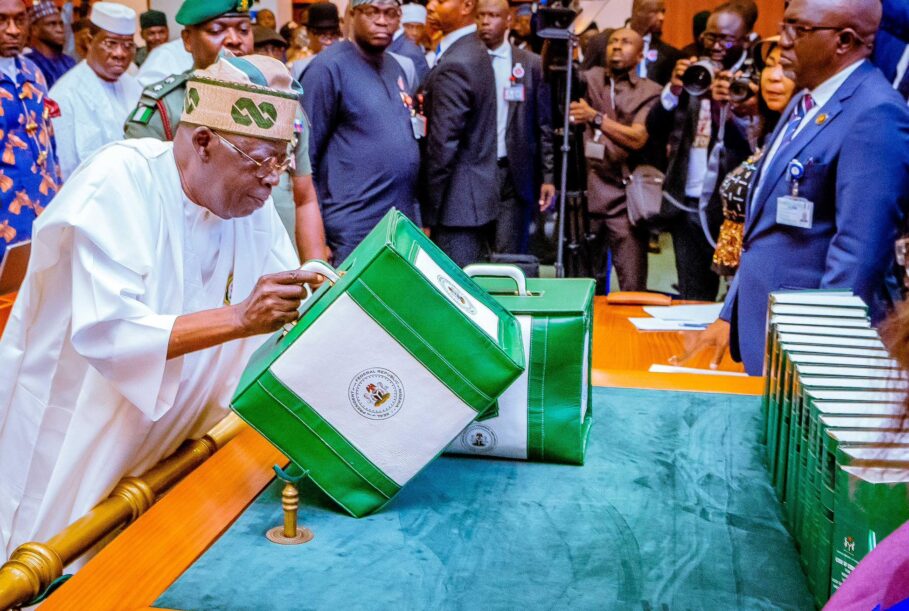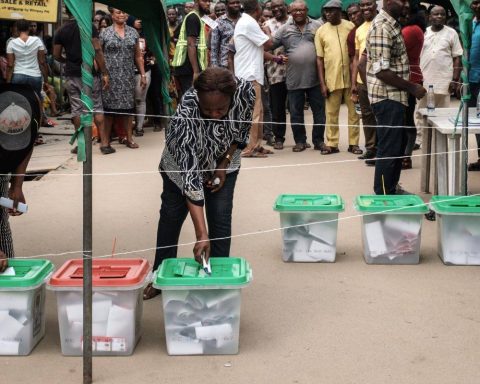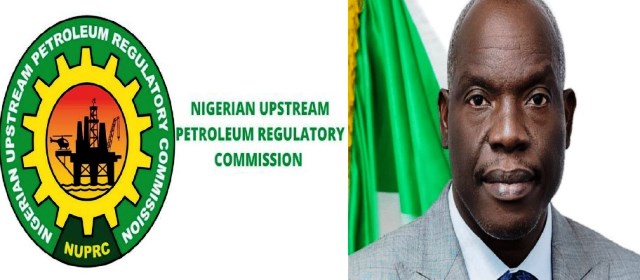The 2024 budget proposal of 27.5 trillion presented by Nigeria’s President on Wednesday has continued to generate reactions with stakeholders urging the National Assembly not to rush in passing it but properly scrutinize items listed in line with the interest of all Nigerians.
President Tinubu had while presenting the budget proposal, thanked the National Assembly for “swiftly” passing the 2023 Supplementary Appropriation Bills and the 2024-2026 Medium Term Expenditure Framework and Fiscal Strategy Paper, adding that he is confident that they would thoroughly consider the 2024 budget and pass it in record time for onward implementation in the coming fiscal year. “Our goal is for the Appropriation Act to come into effect on the 1st of January 2024,” Tinubu had stated at the National Assembly while presenting the budget.
Join our WhatsApp ChannelThe president said the 2024 Appropriation Bill themed the “Budget of Renewed Hope,” “seeks to achieve job-rich economic growth, macroeconomic stability, a better investment environment, enhanced human capital development, as well as poverty reduction and greater access to social security.”

Key assumptions in the budget include 1.78 mpd of crude oil production, $77.96 per barrel, N750 per dollar exchange rate and 21.5 per cent inflation rate. A breakdown of the budget shows N9.92 trillion for non-debt recurrent expenditure, N8.25 trillion for debt service and N8.7 trillion for capital expenditure.
Commenting on the budget, Suen Onigbide, Co-founder/Director, Budgit Foundation, said the government needs to have by now put out details of items in the budget in the interest of transparency and accountability which President Tinubu has repeatedly avowed to since the inception of his administration. He added that publishing details of the budget would enable Nigerians to see the plans the government has and how they would affect their lives positively.
He called on the National Assembly to ensure proper oversight by adequately considering all aspects of the budget before passing it into law.
“I think the National Assembly is trying to make sure that the budget is passed before December 31st, 2023. That’s not how to do oversight, that’s not how to be an institution that is respected by Nigerians that stands for accountability and that’s why the National Assembly should understand its role as a major pillar that distinguishes democracy from every form of government.”
He called on the National Assembly to without being adversarial to the executive arm, maintain its independence as one of the principles of democracy for the sake of the country’s development in the long run.
He said the 2023 Supplementary Appropriation Bill recently passed by the National Assembly could have been included in the 2024 fiscal year for execution given the array of things incorporated into it. According to him, most of the things included in the Supplementary budget were unnecessary given the current economic realities and what ordinary Nigerians are facing.
“I think that with the way the National Assembly moved in recent times, they do not understand how critical their role is. I will advise them not to rush the 2024 budget because this is the first budget that would set the tone for the Tinubu administration. There should be enough scrutiny that must be on it to ensure that one: there is congruence with the manifesto that was produced by the party. Secondly, they must ensure that such line items are also in the context of the recent tribulations or trials that Nigerians are facing.”
Onigbide emphasized that the budget should accommodate funding for infrastructure and support for small businesses given the current harsh economic realities due to fuel subsidy removal that has significantly contributed to soaring inflation.
He urged the National Assembly to consider the budget in line with 10 things contained in a paper earlier published by Budgit that Tinubu’s administration must do to have a budget that translates to developmental goals.
While stating that the immediate past administration of President Muhammadu Buhari spent trillions of naira but didn’t record significant achievements in different sectors such as security, education, agriculture and infrastructure among others, Onigbide, who appeared on Channels Television Sunrise Daily on Monday morning, urged the Tinubu government to ensure that the budget is tied to a long-term national development plan.
He stressed that the budget is an instrument for planning and not a “contract vending machine.”
He also urged the president to seek ideas from civil society organisations and development partners on how the budget can provide value for money, and be accountable and transparent to Nigerians.
He added that the Federal Government is not showing any signs of fiscal discipline and reducing costs of governance given that the country currently has a revenue problem.
He maintained that the problem with the government is that it is focused on spending rather than planning, adding that national development plans designed at different times have not been followed. He emphasized that national budgets should reflect development plans.
Budget Should Be tied to National Development plans
Also, speaking on the budget, Wale Smatt-Oyerinde, DG, Nigeria Employers Consultative Association observed that Nigeria’s past national budgets have hardly reflected national development plans designed in the past.
He said this was because different administrations come up with different agenda that don’t tally with a long-term development plan that is not just within four years or eight years. “We need a sustained growth pattern which every sector will grow on. You spend N1 billion on education this year, and another N1 billion next year. You have to maintain that traction for you to have a good result, that we don’t have now,” Smatt-Oyerinde observed.
He tasked the government on fiscal discipline, adding that what has been seen so far in terms of fund approvals for projects, put to question the promise of President Tinubu to maintain transparency and accountability.
He maintained that the government needs to focus on measures to create jobs and enable private sector players to thrive by dealing with issues in critical sectors like health, education, agriculture, and infrastructure.
Meanwhile, the 2024 budget has passed second reading at the Senate. The lawmakers on Friday, passed appropriation bill after debating on the general principles of the budget.
Victor Ezeja is a passionate journalist with six years of experience writing on economy, politics and energy. He holds a Masters degree in Mass Communication.


















Follow Us